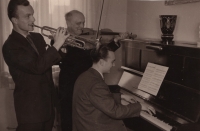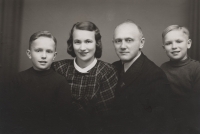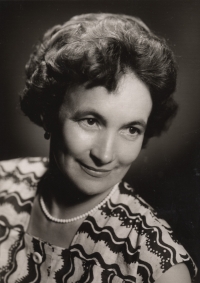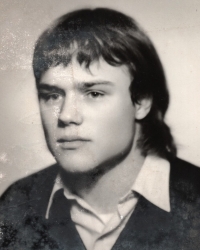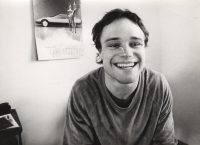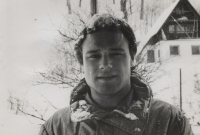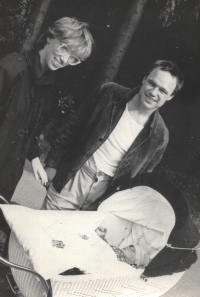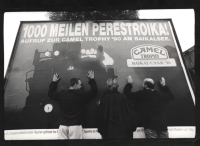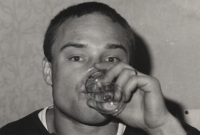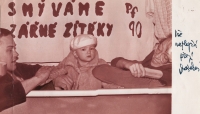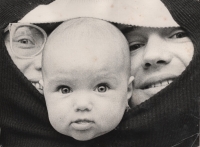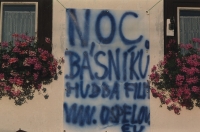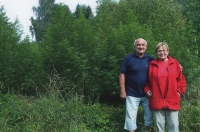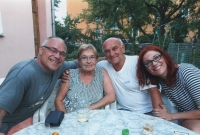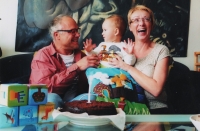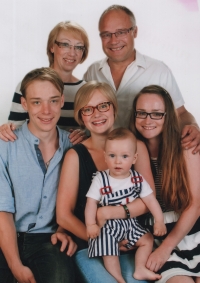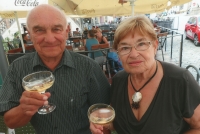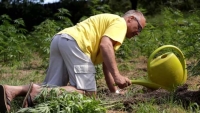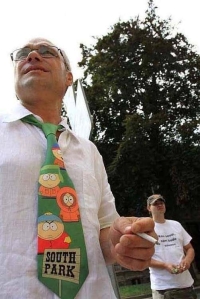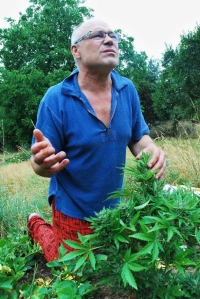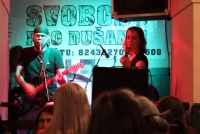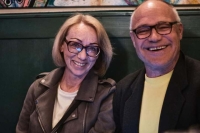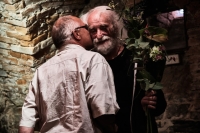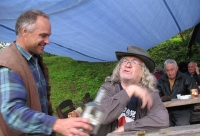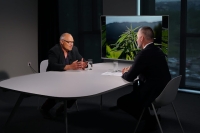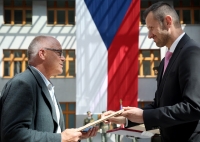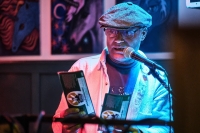Standing up to injustice is our duty
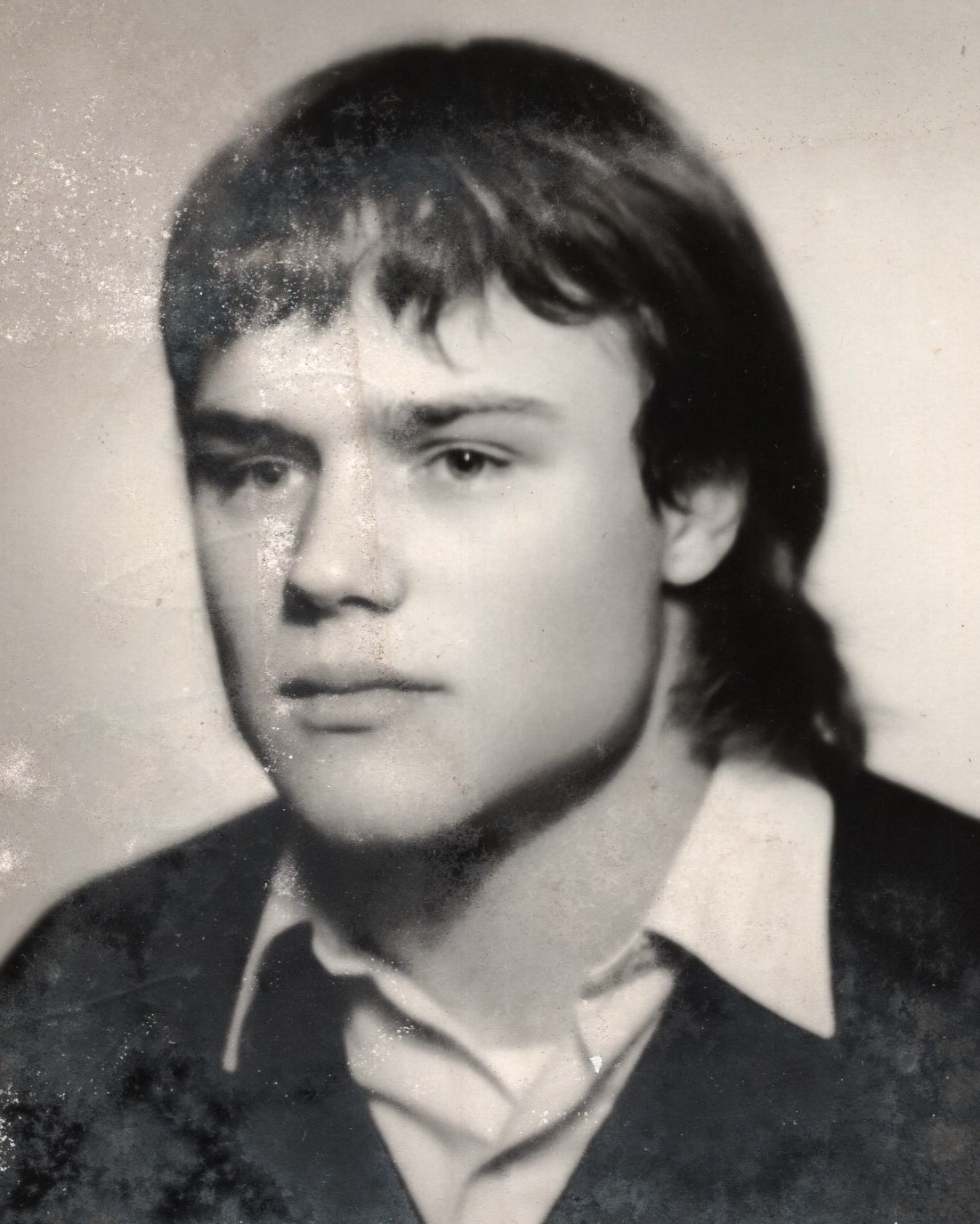
Stáhnout obrázek
Dušan Dvořák was born on 12 January 1962 in Olomouc to parents Jana and František Dvořák, the older of two children. His younger sister Zuzana was born in 1972. He grew up in Olomouc, his parents encouraged him to play sports, from childhood he swam competitively and went to the mountains with his parents. In his teens he was shaped by a group of friends with whom he founded the so-called Petříkov Jazz Section. They used to meet in the Rychlebské hory in Petříkov. He got into banned literature and music, and from 1979 they participated in the dissemination of samizdat literature. After graduating from high school in Olomouc-Hejčín, he studied special education at the Faculty of Education of Palacký University in Olomouc. In 1986-1990 he worked as an ethopedist at the Klíčov Youth Centre in Prague. He participated in anti-regime demonstrations, trials of dissidents, and disseminated and reproduced banned literature. In 1989 he signed the Charter 77. He was at the birth of the Civic Forum in Olomouc in 1989. After 1990 he founded with colleagues from the Youth Centre the NGO Sananim and the first therapeutic community for addicts in Nemčice near Volyně. Between 1994 and 2000 he completed his studies in addictionology (international training) and group therapy training at SUR and psychotherapy studies at the Prague Psychotherapy Faculty, now VŠPS in Prague. He participated in a number of internships, professional courses or training in prestigious foreign institutions in the field of drug prevention: the Polish Monar, Casa Familia Rosetta in Sicily, City Roads in London, E. M. Jellinek Centre in Amsterdam, etc. In Olomouc, he built and managed the P-centre, a centre for prevention, treatment and rehabilitation of people at risk of drug addiction, with a gallery and a sheltered workshop and the family centre U mloka. He participated in the creation of the Olomouc InternetPoradna counselling portal, the creation of the Social Services Act, the Quality Standards for Social Services and their implementation in practice. Since 2000 he has been researching medical cannabis and cannabis therapy. Since 2004, he has applied in vain for a permit to grow and process cannabis for treatment and research, which de iure cannot be issued to an NGO or an individual to this day. He is an expert editor of the monograph on cannabis treatment „The Big Book on Cannabis Treatment for the 21st Century“ (Volvox Globator, 2018). In 2008 he published the research Cannabis is Medicine, then opened the specialist departments of the Educational Cannabis Clinic in Prague, which was created in 2009-2010 by rebuilding the barrier-free school for adults Ateliér ALF, which he built and led in Prague in Žižkov in 2006. Since 2006, he had been growing medical cannabis on his land in Ospělov, which was harvested by the police every year between 2009 and 2019. He tried to enforce the right to medical cannabis and its availability through criminal proceedings and proposals to decriminalise cannabis for personal and medicinal purposes and make it available to science and the sick, and to change legislation. In 2019, he was sentenced to three years in prison, his sentence was later increased by transforming the conditions and interfering with the independence of the court, and he was released from prison in 2023. He and his wife Radomíra raised their children Vanda, Štěpán and Anna, and in 2024 he lived alternately in Ospělov, in Olomouc and travelling.
